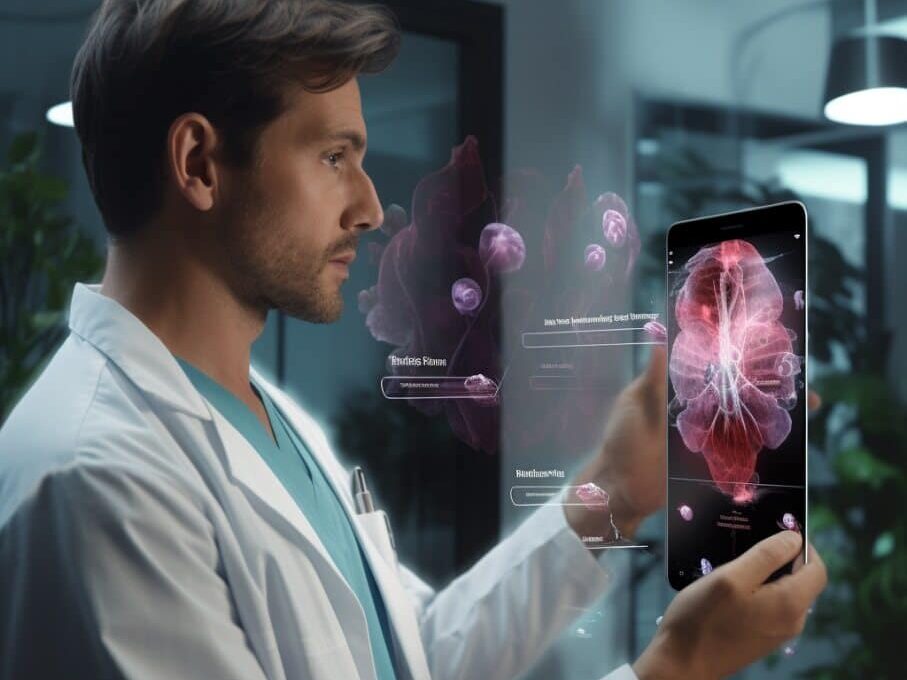10/05/2024
Artificial intelligence (AI) has attracted a great deal of attention and interest for its potential applications in medicine. Robust automation and efficiency in disease diagnosis, treatment, an prognosis have helped to bring about revolutionary change in clinical practice and today, it is widely implemented in routine clinical care.
This evolution of AI in medicine has not only showcased the potential of cutting-edge technology to revolutionise healthcare but also presented a set of challenges that need to be addressed. The impact of AI on the medical field is vast and multifaceted, underscoring both the opportunities and hurdles it presents.

AI in diagnostic support
One of the most transformative applications of AI in the medical field is its ability to interpret medical images, such as X-rays or MRIs, with a high degree of accuracy. This capability is instrumental in the early detection of diseases, allowing for timely intervention and significantly improving patient outcomes.
Google’s partnership with medical device manufacturer iCAD is a great example of this. In late 2022, Google licensed its mammography AI research model to iCAD, with the goal of improving breast cancer detection and assessment. Prior to the partnership, Google’s mammography model was found to be capable of diagnosing breast cancer more accurately than experienced radiologists.
Google’s breakthrough not only highlights the advanced analytical capabilities of AI but also underscores its potential to enhance diagnostic accuracy, reduce errors, and support healthcare professionals in making more informed decisions about patient care. Current research is focusing on improving the accuracy and reliability of such systems.
AI in personalised medicine
AI is revolutionizing the way medical data is analysed, paving the way for the development of personalized treatment plans that take into account the unique genetic and biological characteristics of individual patients. This tailored approach to medicine is made possible by AI’s ability to sift through vast amounts of data, identifying patterns and insights that would be impossible for humans to discern within a reasonable timeframe.
A prime example of AI’s impact on personalised medicine is its role in oncology, where it is used to identify specific biomarkers that can guide the selection of the most effective cancer therapy for each patient. This not only optimises treatment efficacy but also minimises the risk of adverse side effects, significantly improving the quality of patient care. By pinpointing the exact biological markers that indicate how a patient’s cancer is likely to respond to different therapies, AI is helping to transform oncology.
This success has led to the extension of AI to other areas of disease, with the goal of broadening the scope of personalised medicine. As these efforts continue, the potential for AI to enhance the efficacy of treatments across a wide range of conditions becomes increasingly evident and is leading to the substantial growth of the personalised medicine market.
AI in telemedicine
Telemedicine is another area where AI has been a game changer, particularly for patients who don’t have easy access to healthcare services because of distance or mobility issues. The ability to receive medical care remotely is not only convenient but can also lead to better health outcomes by ensuring timely medical intervention.
A particularly notable advancement in this area is the integration of chatbots and virtual assistants into the healthcare system. These tools can provide immediate responses to medical inquiries, assist with the scheduling of appointments, and even offer preliminary health advice without the need for intervention by a physician, thereby streamlining the patient care process. An example of this technology in action is OneReach.ai, a platform that leverages AI to enhance communication between healthcare providers and patients, making medical care more accessible and efficient.

Looking ahead to the future, advancements in robotics and wearable technologies could further democratise access to medicine for disadvantaged or disparate groups by enabling more sophisticated remote monitoring and intervention, allowing healthcare providers to track patients’ health metrics in real-time and respond to potential issues on the fly.
AI in drug development
The integration of AI into the pharmaceutical space is not only enabling the development of new and novel drugs but also accelerating the existing drug development process. This is a major positive given that drug development has traditionally been slow and costly, leading to a high cost of bringing drugs to market.
AI enables this by offering powerful tools to identify potential active ingredients, predict possible side effects, and optimise dosages. This streamlined approach not only speeds up the research and development phase but also enhances the safety and efficacy of new medications, ensuring that they meet the necessary regulatory standards more efficiently.
Companies such as Insilico Medicine are leading the charge in this area by leveraging AI to sift through vast databases of chemical compounds and biological data and unearth promising candidates for new drugs much faster than traditional methods allow. This is helping to not only accelerate the pace of innovation in pharmaceuticals but also significantly reduce development costs.
AI systems are expected to continue playing a critical role in the development of drug development in the future, particularly in the case of rare diseases that have traditionally been underserved by the broader pharmaceutical industry.
AI in preventative healthcare
Preventative healthcare involves measures taken to prevent diseases or injuries rather than curing them or treating their symptoms. AI is making waves in this area, particularly through its ability to analyse health data to predict risk factors for certain diseases. This capability enables healthcare providers to recommend early detection measures, which can significantly improve the overall health of the population. By identifying those at higher risk of developing specific conditions, AI-driven tools can facilitate targeted interventions, thus preventing diseases or detecting them at an earlier, more treatable stage.
One area where this is having a dramatic impact is in cardiovascular health, where healthcare providers are now using AI-based tools to sift through patient data, including genetic information, lifestyle factors, and previous health records, to identify individuals who are at an increased risk for cardiovascular diseases, which account for the largest share of worldwide deaths. This proactive approach allows for the implementation of personalised preventive measures, such as lifestyle adjustments or closer monitoring, thereby reducing the likelihood of adverse health events.
In preventative healthcare, future research is expected to focus on refining AI algorithms to tailor preventive measures even more precisely to individual needs. This could involve a more nuanced analysis of genetic predispositions, environmental factors, and lifestyle choices to develop personalised prevention plans that effectively mitigate risk, thereby decreasing the incidence of a wide range of diseases.
AI in pediatric medicine
In pediatric medicine, AI is playing an increasingly important role in diagnosing diseases and health conditions in children. Here are some examples and applications of AI in pediatric medicine:
Diagnostic imaging: AI systems enhance the capability to interpret medical images like ultrasounds, X-rays, or MRIs, thereby enabling the detection of disease at an early stage. This can be vital in paediatric care, where early intervention can significantly impact a child’s health and development. For instance, AI’s precision in identifying congenital abnormalities or developmental disorders helps initiate timely treatments, potentially leading to better health outcomes.
Genomic analysis: AI can pinpoint the genetic causes of rare diseases in children. This approach enables a faster, more accurate diagnosis, thereby paving the way for the development of personalised treatment plans. By understanding a child’s unique genetic makeup, healthcare providers can tailor interventions that are more effective and less invasive, offering hope for conditions that were previously challenging to manage.
Early detection of developmental disorders: AI has applications in helping to identify developmental disorders, such as autism or ADHD, at an early stage. By analysing behavioural patterns and symptoms, AI tools can alert healthcare providers to potential concerns much earlier than traditional diagnostic methods. Early detection allows for the initiation of supportive interventions sooner, which can be critical in improving a child’s social, academic, and emotional development.
Telemedical consultation: AI-powered telehealth platforms are making healthcare more accessible to children and their families. These platforms enable medical advice and support through virtual consultations, eliminating the need for physical travel. This is particularly beneficial for families in remote areas or those with limited mobility, ensuring that more children have access to quality healthcare services.
Medication management: In paediatric medication management, AI assists healthcare professionals in determining the optimal dosage and type of medication, taking into account individual factors such as weight, age, and health status. This reduces the risk of adverse reactions and increases the effectiveness of treatments, addressing one of the significant challenges in paediatric medicine.
AI in cancer research
AI is transforming cancer research, with leading institutions around the globe integrating AI technologies to push the boundaries of diagnosing, treating, and understanding cancer. Here’s how AI is making an impact:
The Memorial Sloan Kettering Cancer Center (MSKCC) in New York City stands at the forefront of AI-powered cancer developments. As one of the world’s leading cancer centres, the MSKCC utilises AI to enhance the analysis of medical images, interpret complex genetic data, and develop personalised therapies tailored to the genetic profile of individual cancer patients. Their work is drastically improving the precision of cancer treatments and patient outcomes.
IBM Watson Health has created a groundbreaking platform, Watson for Oncology, which aids oncologists in making informed treatment decisions. The platform can sift through vast amounts of medical literature, patient records, and clinical guidelines, providing evidence-based treatment options. This tool represents a significant step forward in integrating AI into clinical practice, offering up-to-date, personalised cancer care.
Google Health is actively contributing to cancer research through several projects. Among its notable endeavours is the development of AI systems capable of early detection of breast cancer in mammography images and predicting lung cancer progression, which was discussed earlier in this article. Google Health’s initiatives aim to enhance early diagnosis and prognosis, potentially saving lives by catching cancer at its most treatable stages.
The Dana-Farber Cancer Institute in Boston is known for its commitment to personalised cancer medicine. Here, AI technology is employed to analyse genetic information, enabling the institute to create personalised treatment plans that address the specific genetic mutations driving a patient’s cancer. This targeted approach is leading the charge toward more effective and less toxic treatments.
Beyond these examples, universities and research institutes globally are exploring AI’s potential in cancer research. These include the MD Anderson Cancer Center in Texas, the Institut Curie in France, and the National Cancer Institute (NCI) in the United States. Additionally, the University Hospital in Essen, associated with Dr. Felix Nensa, is notable for its contributions to AI research in oncology. These institutions are playing an instrumental role in advancing our understanding of cancer and developing innovative treatments, underscoring the global effort to leverage AI in the fight against what is one of humanity’s biggest killers.
AI in medicine: a new era of medical innovation
The integration of AI into healthcare and medicine is leading to a new era of medical innovation, the likes of which have arguably not been seen since the 19th century. Through its capability to dramatically enhance diagnostic accuracy, personalise treatment plans, and improve patient care experiences and outcomes, AI is undeniably a transformative force—and the race is on to integrate it across the healthcare field end-to-end.
Beyond individual patient care, AI’s contributions to advancing medical research promise to uncover new treatments, drugs, therapies, treatment options, and interventions, further improving the standard of healthcare globally. Finally, healthcare systems can achieve greater efficiency and cost-effectiveness through the adoption of AI, leading to improved patient outcomes and access to care.
As AI continues to proliferate throughout the healthcare space, it promises a future where interventions are more precise, outcomes are better, and the patient experience sits at the core of care delivery.
Let us power your digital transformation
A global leader in digital transformation, Getronics’ mission is to maximise your business potential with our powerful technology solutions. Getronics has more than 25 years of experience in healthcare.
With a team of more than 4,000 specialists across 22 physical locations, we’re uniquely positioned to provide comprehensive end-to-end digital services that drive growth, reduce cost, and deliver real, quantifiable success.
If it’s time for your business to evolve, contact a Getronics expert today and kick off your digital transformation.



